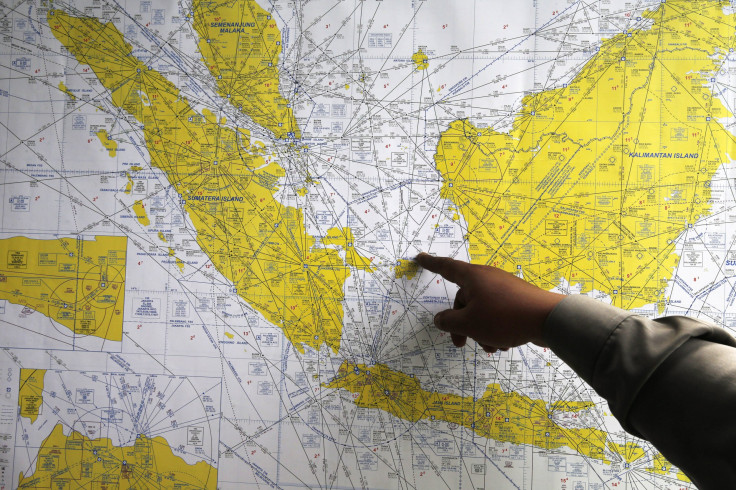No, AirAsia Flight QZ8501 Didn’t Disappear Because Of The Metric System

As the search for missing AirAsia flight QZ8501 got underway Sunday, aviation experts and news pundits offered a wide range of hypotheses about what might have happened to the aircraft during its travel between Indonesia and Singapore, including assertions that pilot error, terrorism or bad weather may have been to blame. One theory that stood out was a Fox News commentator's conclusion that the plane’s disappearance could be chalked up to the fact that AirAsia’s pilots rely on the metric system of measurement.
Anna Kooiman made the surprising assertion during a Sunday interview with Federal Aviation Administration (FAA) spokesman Scott Brenner on the Fox News show Fox & Friends. She opened their dialogue by inquiring about the ways that Asian and American airlines’ training and measurement standards differ.
“Let’s talk about the differences. Even when we think about temperature, it’s Fahrenheit or Celsius. It’s kilometers or miles. You know, everything about their training could be similar, but different, right?” she asked.
Brenner responded by stating that other differences between carriers may have an impact on safety but he did not agree with her inference about the importance of the use of the metric measurement system. “I think that you see just a large reliance on automatic pilot, and the requirement that pilots use that automatic pilot more often than probably here in the U.S., and a lot of that is just because, as some of your previous guests have said, a lot of crashes are due to pilot error,” he said. “So if you try and eliminate any potential risks, you try to eliminate the pilots’ ability to make, you know, incorrect inputs into the aircraft.”
The metric system is the standard system of measurement in nearly all the world’s countries, and while Asia has seen a number of recent air travel crises, air carriers in Europe, South America and other areas of the globe have not experienced similar problems, despite their reliance on the metric system.
Chris Yates, a U.K.-based independent aviation expert, told Deutsche Welle that though AirAsia “has had a clean bill of health” since it was launched in 2001, “Indonesia has a very poor safety record” regarding air travel, with “nine incidents this year alone.” But he added that weather was a more likely culprit. “From the abundance of information already in the public domain, it would seem that the loss of the AirAsia airliner may well be down to the weather,” he said.
The concept that the metric system is inherently inferior to the U.S. standard system is not credible, given that only a couple of countries operate on it and the rest of the international community gets on just fine both in air travel and other areas of life that require taking measurements, PoliticusUSA.com’s Hrafnkell Haraldsson pointed out in response to Kooiman’s remarks.
“There are literally millions and millions of flights to and from countries that use the metric system, because pretty much the entire world uses the metric system except for the United States, Liberia and Myanmar (though some elements of the old Imperial System are still used in the United Kingdom, Canada and elsewhere the British Empire once reigned),” Haraldsson wrote.
Later in her interview with Brennan, Kooiman reiterated her point about differences in measurement systems, then inquired about how safe international air travel is.
“It’s not just differences in the way that we measure things, it’s a different in how are pilots are actually trained?” she asked. “Is it not as safe in that part of the world, because our viewers may be thinking, 'International travel -- is it safe, is it not safe?'”
Brenner assured her that despite occasional crashes and other incidents, traveling by plane remains the safest form of modern transportation.
Fox News is not the only 24/7 news channel that has already taken to trotting out less than mainstream theories about AirAsia flight QZ8501’s disappearance. Asked what she thought may have caused the aircraft to go missing, Mary Schiavo, a former U.S. Department of Transportation inspector general and currently CNN's aviation analyst , said that weather conditions suggested it probably was not a terrorist attack.
“[A]t this point, given it was extremely bad weather, the chances of this being some sort of a terrorist activity are very small -- because most terrorist activity takes place in good weather,” she said, according to Raw Story. “For example, 9/11.”
© Copyright IBTimes 2024. All rights reserved.




















